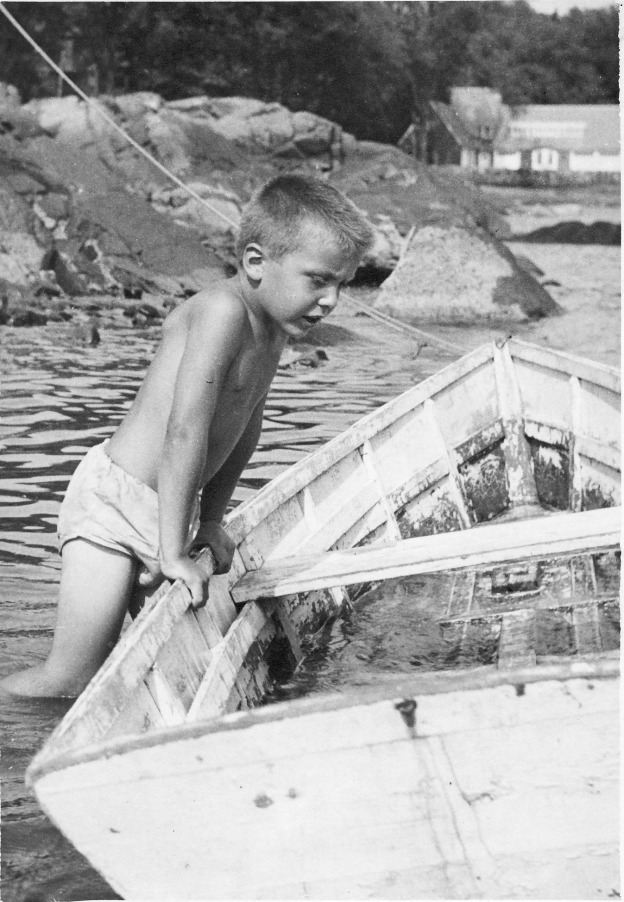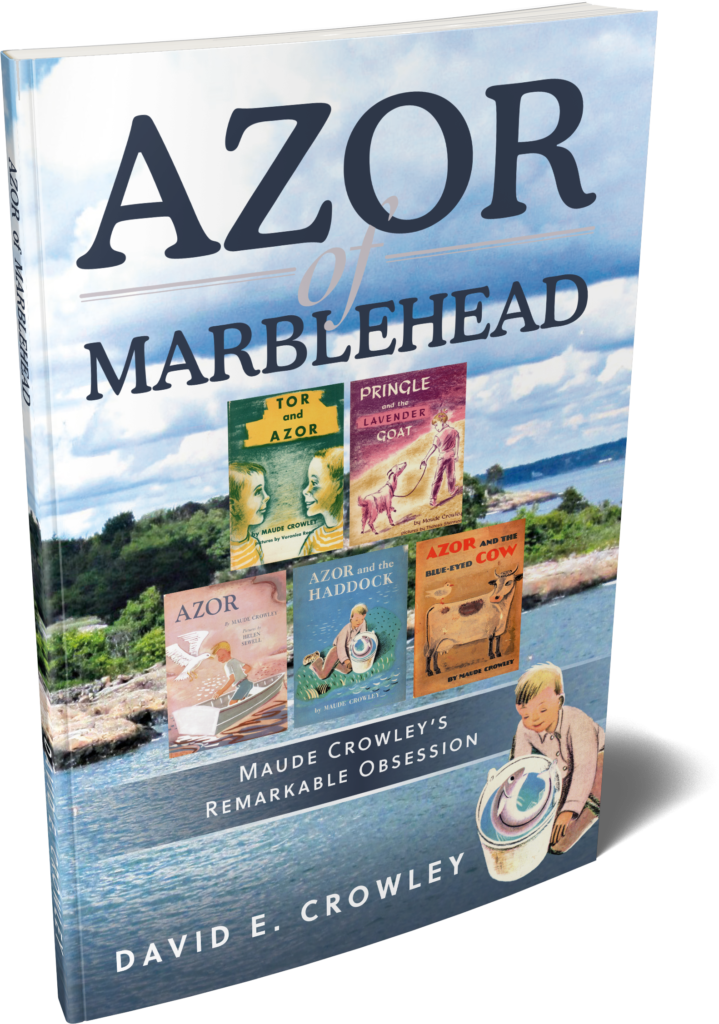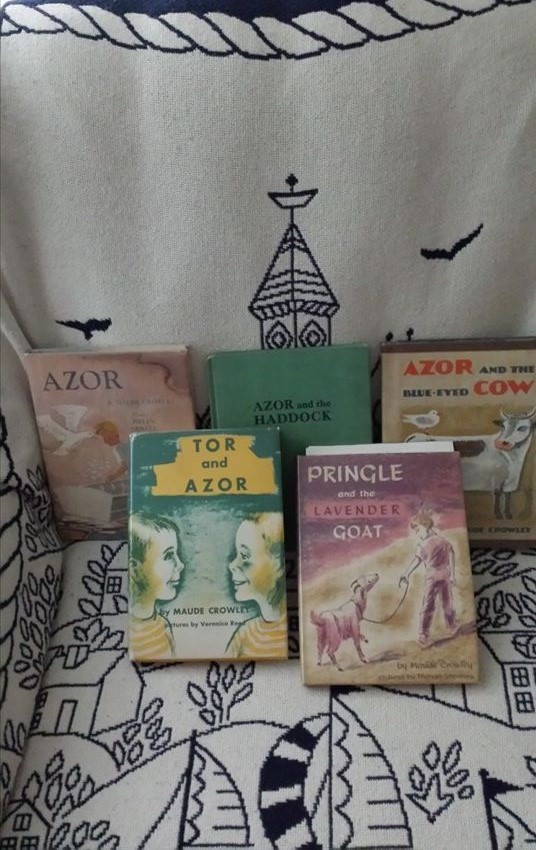Collected memories



Contact dave@davidecrowley.com to order at a hefty discount from the original price of $21.95! Now $14.95 including priority shipping
Check out the synopsis to learn more:
 How the Town of Marblehead and its people inspired my mother, Maude Crowley, to produce this treasured series that illuminates a child’s life in a time long past. I have the inside story and would be willing to produce a small book that reveals the author’s background and what it took to have the five books published by Oxford University Press. Plus, I have loads of press and radio interviews, high-quality photos, and the original watercolor illustrations by Marblehead artist Ingrid Selmer-Larsen that were intended to go in the series.
How the Town of Marblehead and its people inspired my mother, Maude Crowley, to produce this treasured series that illuminates a child’s life in a time long past. I have the inside story and would be willing to produce a small book that reveals the author’s background and what it took to have the five books published by Oxford University Press. Plus, I have loads of press and radio interviews, high-quality photos, and the original watercolor illustrations by Marblehead artist Ingrid Selmer-Larsen that were intended to go in the series.
“I just treasure them and it took me a long time to get not only mine, but my mother’s, as well, due to the book search and time,” writes Lynne Jastremski DeGrandpre who took this wonderful photo of the five books that my mother published between 1948 and 1960.”
“I grew up in Marblehead in the ’70s. Your mom’s Azor series had a place of honor on my bookshelf, and I enjoyed walking the same streets as Azor and his friends. I now read the books to my girls, who enjoy recreating the same adventures when we go back to M’head each summer,” another Azor fan emailed me.
If you would like a book that gives the origin of the Azor stories and includes the unpublished artwork, I’ll go ahead with the project over the winter and spring. It’ll be available at a reasonable cost. Be sure to add your comments and suggestions to this post, Email me or check it out in the Azor of Marblehead group on Facebook.
It must have been at my 40th Marblehead High School in reunion in 1997 that some of us spoke of Dave Eckhardt, the scoutmaster we hadn’t seen since the mid 1950s. Someone, maybe Tom Hansen, remembered that he had moved to Chicago, and on a visit there had tried to look him up with no success. Someone else remembered hearing something about Dave living in Virginia and had tried to find him, again without result. The mystery of Dave Eckhardt rattled around in the back of my mind for a couple of years and I couldn’t let go of it. After all, I had played a role connecting him with Troop 3 in the first place. He had turned up as a border in the summer of 1951 in the house where we rented rooms at 18 Pearl Street when I was twelve. I mentioned that I was Boy Scout in Troop 3, and Dave, then age twenty-one, had jumped at the opportunity to get involved. Fifty years later, in April 2001, I undertook an internet search and found a David C. Eckhardt in Virginia Beach, VA. I sent off a letter and received an email from him several days later. That evening we spoke on the phone for an hour.
Dave had four grown children and two grandchildren. What brought him to Marblehead in 1951 was a job with Sylvania in transistor research following his graduation from Carnegie-Mellon University. His young single co-workers, he told me, spent their evenings in bars, but he wanted to do something useful with his spare time — his explanation for his non-stop dedication to our Boy Scout troop. He had discovered after his three and half years in Marblehead that he was better suited for sales than for research and had switched from Sylvania to IBM where he had worked mostly in Chicago. After IBM he moved to Virginia and began a real estate business. At seventy-one he managed an agency full time that dealt in condo time-shares. He added that he had raised his children through their teenage years as a single parent. I couldn’t think of anyone better prepared for single parenting than Dave Eckhardt after his experience with us.
At our forty-fifth high school reunion in 2002, I suggested to Hopper Cutler and Tom Hansen that we might do a Boy Scout reunion and bring Dave back to Marblehead for a visit. They agreed. After returning to St. Louis I dug into the job of locating as many alums as I could. I did a lot of this research using my internet connection at work during slack periods which my employer didn’t seem to mind. We had weathered the millennium bug thanks to intense preparation, and my job had become a lot easier. I started with a few addresses and sent letters and then emails. Everyone I contacted helped to locate others. The Yankee Clipper Boy Scout Council dug up old troop rosters from Marblehead going back into the 1930s and sent me copies. Of the 41 alums I found 22 were willing to come on the date we had set: May 22, 2004. At the Marblehead end, Hooper arranged for us to use the Masonic Hall on Pleasant Street and located a caterer who did a marvelous job with fried shrimp at low cost. Buck Grader volunteered the Landing Restaurant for a Saturday morning gathering and arranged lodging for Dave Eckhardt at the Boston Yacht Club.
Barb and I drove east from St. Louis and stayed at the Harborside House B&B on Gregory Street. Eckhardt, it developed, was flying in from China, and had missed a connection which would delay his arrival at Logan Airport until late Friday night, May 21. Hooper picked me up at the B&B and we drove into Logan to collect our prize. Dave seemed refreshed after three sleepless days on airplanes. Except for white hair, he looked just he had in 1954. We drove him back to the Boston Yacht Club where Buck Grader was waiting; it must have been well past midnight.
The reunion was well chronicled in The Marblehead Reporter by Dawn Bucket, George Derringer and Hooper and Joan Cutler. “Pic” Harrison supplied great photos. Here, in part, is what Hooper and Joan wrote:
Mr. Eckhardt (Dave) spoke of his gratitude being sought out after so many years, what these “kids” had meant to him, done for him, given back to him – not the other way around. A devout Christian, he told of his travels to Thailand living with a peace-loving gentle Buddhist family; or before yet another adventure, reading the Koran to better understand the Muslim family he would visit. …He shared his most recent journey: visiting a … Chinese English teacher. When asked to teach the class a song and poem, all he could think of was “John Jacob Jingle Heimer Schmidt” and “Peter Piper Picked, etc.” Then Dave encouraged all present (former Scouts, families and friends) to look at life as an adventure and recognize that just Marblehead or just Virginia Beach isn’t our world anymore. He enjoined all to open themselves, to embrace, to learn what the world is and what it will be. With his four children grown and twin granddaughters recently born, he continues to live by own words, embracing life, sharing himself with them and others just as he did 50 years ago. Lucky Troop 3.
“Pic” Harrison shared another perspective:
In concluding his remarks, Dave Eckhardt said that, “life was a continuing journey and that we all had much to look forward to.” After the applause Hooper Cutler, a third organizer of the event said, “Dave, why didn’t you tell us this fifty years ago!” For just a brief time while Dave was talking he was our leader once again, and we were the boys.
Next week: WRMC at Middlebury College
After school one day in 1950 when we were twelve, Freddy and I got to Pearl Street and found a small plastic bottle sitting on the porch by the front door. There was a large tag attached to it proclaiming that “Liquid Joy,” a brand new product, would get your dishes, glasses and silverware cleaner than any of the old fashioned powders could. What’s more, the tag said, this very sample of “New Liquid Joy” was free.
Neither of us I had given any thought to dish washing detergents, but we brought the sample into the house anyway. No adults were home. We took it upstairs to the bathroom and I got the idea of pouring the whole bottle down the sink. I did and ran a lot of hot water after it for good measure. After a while we went into my room which had a window overlooking the side yard. I looked out and saw a large mound of soapy bubbles in the center of the yard. The pile of bubbles billowed larger and larger as we watched. I knew right away what I should have thought of before dumping the detergent into the sink and sending all that hot water in after it. In the middle of the side yard was a vent connected to the sewer pipe that joined the drains in the house to the sewer line in the street. The bubbles were lighter than water, and like the sewer gases that the vent was designed to expel, they rose to the surface. The bubbles stopped growing and, very slowly, began to pop. By the time the adults came home an hour or so later no evidence was left.
After I reconnected with Freddy in 2102, he and I were talking on the phone when I thought of an incident my mother had recalled, but that I had forgotten. Freddy and I were around eleven when we came back to my house at 18 Pearl Street after an afternoon of fishing in the harbor. My mother was fixing dinner and I asked if Freddy could eat with us.
“Sure, let me speak with Vivian and make sure it’s OK with her,” my mother replied.
“My mother isn’t home, it’s only Omama,” Freddy said, referring to his grandmother.
“Fine, I’ll speak with her.”
“She doesn’t speak any English, only Spanish and German,” Freddy answered.
“Well….” My mother paused and said, “OK, can you call and ask if it’s all right for you to stay over?”
Freddy called Omama and emitted a rapid-fire burst of Spanish. He listened for a minute and turned to my mother and said, “It’s OK.”
Later my mother told me that she had been uneasy. After all, she didn’t want to get into hot water with Vivian, a very strict European-style parent, but she also wasn’t about to deprive Freddy of dinner.
At age twelve, I knew nothing about Omama except that she and Vivian spoke in German. For all I knew she could have been the witch from “Hansel and Gretel.”
When I told the story to Freddy he laughed. “Omama’s English was fine,” he said, “She could speak six languages.” I had forgotten that he had said that she had been married to an Englishman in Argentina for many years. Now we both laughed. At age eleven, Freddy had bamboozled my mother about his grandmother’s English and gotten away with it. But something about what he said had ignited my curiosity about Omama. His truthful account had liberated her from the fairy tale in my mind. “If Freddy’s grandmother looked and sounded so Germanic, wouldn’t her name have been something like Hilde or Gertrude?,” I wondered. What was Omama’s name, I asked Freddy.
“Her name was Margaret Lewis,”
Next week; Camp Norshoco